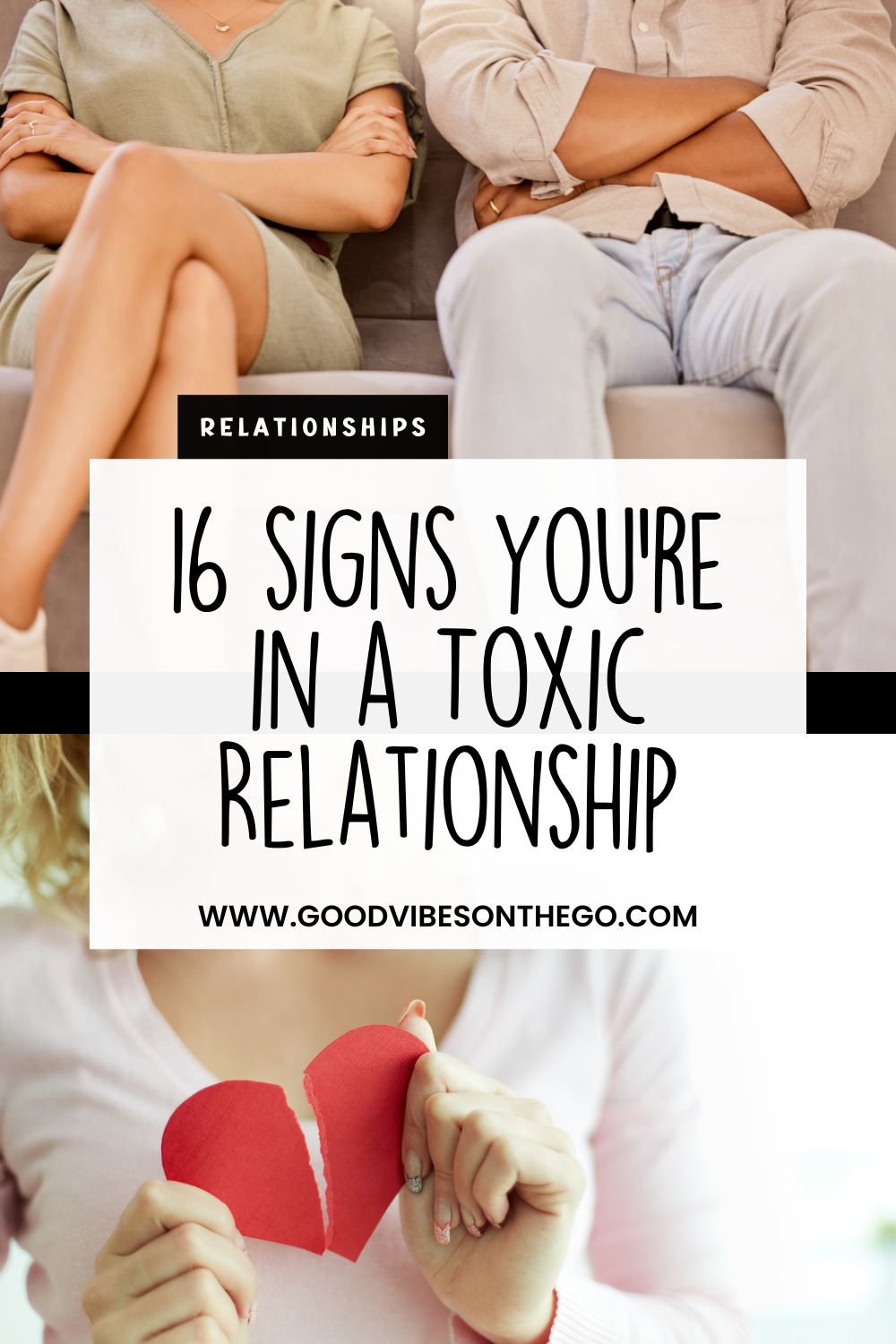Toxic Relationship is a phrase that carries a heavy emotional weight, and for good reason. Being in such a relationship can be emotionally draining and mentally exhausting. In this article, we will delve into the subtle yet unmistakable signs that you might be entangled in a toxic relationship. It’s important to recognize these signs early on, as they can have a profound impact on your well-being and happiness.

Ignored Boundaries Lead to Disrespect
In a healthy relationship, boundaries are not only respected, but they are also joyfully celebrated. However, in a toxic relationship, boundaries are often regrettably brushed aside. The consideration that your opinions, feelings, and personal space rightfully deserve might not be granted. This lack of respect for your boundaries is a glaring sign of toxicity.
Eroding Self-Esteem and Confidence
Toxic partners often employ tactics that gradually chip away at your self-esteem. Constant criticism, belittling remarks, and comparisons can make you question your worth. Over time, this can lead to a significant blow to your self-confidence and overall sense of self.
Isolation from Loved Ones
If you find yourself distanced from friends and family because of your partner, it’s a concerning sign. Toxic relationships thrive on isolation, making it easier for the toxic partner to maintain control. This separation from your support network can leave you feeling lonely and trapped.
Rollercoaster of Emotions
One hallmark of a toxic relationship is the emotional rollercoaster you experience. Highs and lows are frequent, leaving you feeling disoriented and uncertain. The relationship might swing from intense passion to heated arguments, creating a constant state of chaos.
Gaslighting and Manipulation
Gaslighting is a manipulative tactic often used in toxic relationships. Your perceptions are questioned, and you’re made to doubt your own reality. This can lead to confusion, anxiety, and a feeling of losing touch with your own sense of truth.
Constant Feeling of Walking on Eggshells
If you find yourself in a situation where you’re perpetually concerned about setting off your partner’s anger or evoking their displeasure, it’s an unmistakable indication that you’re ensnared within the confines of a toxic relationship. Walking on eggshells to avoid conflicts is not a healthy way to live, and it indicates an imbalance of power.
Lack of Personal Growth
Healthy relationships encourage personal growth and individual pursuits. In contrast, toxic relationships often stifle your growth and ambitions. Your partner might discourage your aspirations or undermine your achievements, keeping you from reaching your full potential.
Unhealthy Jealousy and Possessiveness
While a little jealousy can be normal, excessive jealousy and possessiveness are not. In a toxic relationship, your partner might try to control your every move and interaction out of unfounded insecurity. This behavior restricts your freedom and autonomy.
Disregard for Consent
Respecting each other’s boundaries, including consent, is crucial in any relationship. In a toxic one, your partner might consistently disregard your wishes and feelings, even when it comes to intimate matters. This blatant lack of respect for your consent is a major red flag.
Feeling Drained and Depleted
Toxic relationships consume a significant amount of emotional energy. If you find yourself constantly drained after interacting with your partner, it’s a sign that the relationship is taking a toll on your well-being.
Inability to Communicate Effectively
Healthy communication is the cornerstone of any successful relationship. In a toxic relationship, communication often breaks down. Within the intricate realm of emotions, conversations seamlessly morph into heated arguments, and sincere efforts to address concerns are met with a disheartening combination of defensiveness and skillful evasion.
Intuition and Inner Discomfort
Your gut feelings are powerful indicators. If you have a constant feeling of inner discomfort, even if you can’t pinpoint why, it’s worth exploring whether your relationship is the source of this unease.
Your Needs Are Always Secondary
In a toxic relationship, the consistent sidelining of your needs and desires takes place. Your partner’s needs take center stage, and you might find yourself sacrificing your own well-being for the sake of the relationship.
Lack of Trust
Trust is the foundation of a healthy partnership. In a toxic relationship, trust issues are common. Whether it’s due to previous betrayals or ongoing deceit, the lack of trust can erode the connection between you and your partner.
Change Feels Impossible
Despite your best efforts, if the relationship remains stagnant and unchanged, it might be a sign that it’s toxic. Healthy relationships evolve and adapt over time, but toxic ones tend to remain stuck in dysfunctional patterns.
Unwillingness to Let Go
Perhaps the most poignant sign of a toxic relationship is the difficulty of letting go. Even when you’re aware of the toxicity, the emotional attachment and fear of the unknown can keep you trapped in an unhealthy dynamic.
Recognizing the signs of a toxic relationship is the first step towards reclaiming your happiness and well-being. Trust your instincts and prioritize your emotional health. Remember, you deserve a relationship built on mutual respect, support, and love.

Frequently Asked Questions
Q: How can I break free from a toxic relationship?
A: Breaking free from a toxic relationship often requires seeking support from friends, family, or professionals. Creating a safety plan and focusing on self-care is crucial during this process.
Q: Can a toxic relationship change for the better?
A: While change is indeed possible, it’s crucial to bear in mind that both partners must be genuinely willing to acknowledge the toxicity and collaboratively work together to bring about profound and meaningful changes. In many cases, seeking external help is necessary.
Q: What are some self-care practices to heal from a toxic relationship?
A: Engage in activities that bring you joy, practice mindfulness and self-reflection, surround yourself with positive influences, and consider therapy to help you process your emotions and experiences.
Q: How do I set healthy boundaries in a relationship?
A: Healthy boundaries involve open communication. Clearly expressing your needs and limits while being prepared to enforce consequences if they’re crossed. It’s about respecting yourself and your partner equally.
Q: Is it normal to feel guilty after leaving a toxic relationship?
A: Yes, feeling guilty is a common emotional response. And Remember that prioritizing your well-being is not selfish. Seek support to navigate these complex feelings and focus on your own healing journey.


Leave a Reply